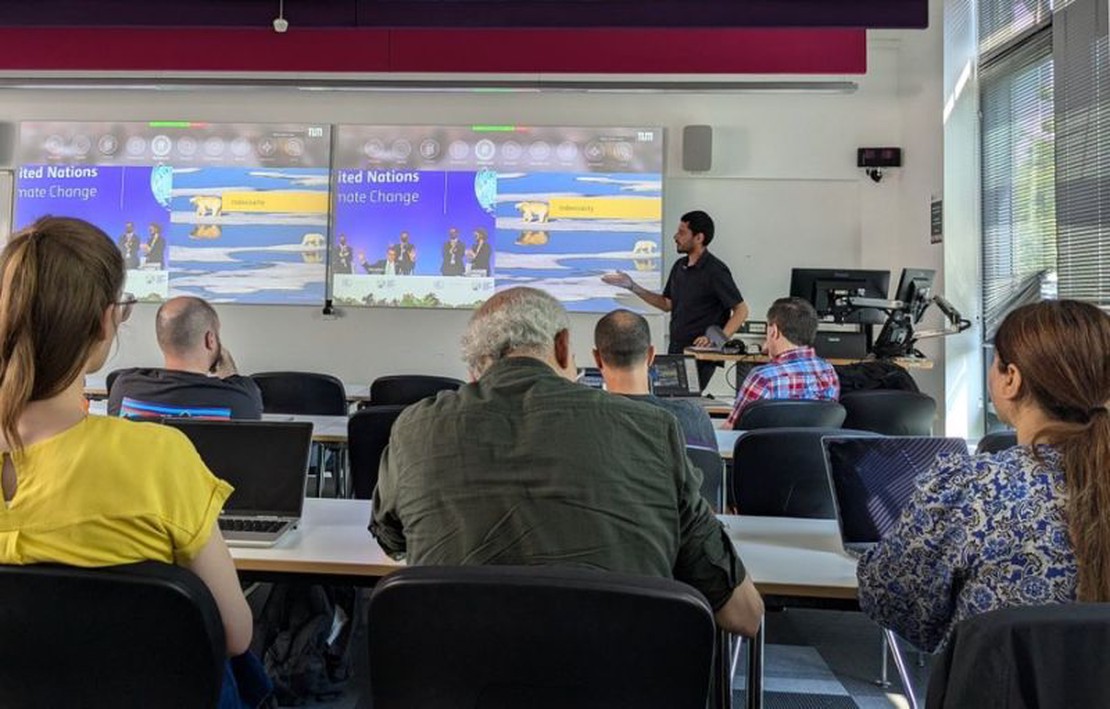
C3DS Seminar Explores Visual Framing of Climate Change Imagery on Twitter
- Isaac Bravo
- Climate change , Network
- June 26, 2024
The Centre for Climate Communication and Data Science (C3DS) hosted a seminar on June 26th, 2024, featuring Isaac Bravo from the Technical University of Munich, Germany. Bravo presented his research on the “Visual Framing of Climate Change Imagery on Twitter.”
The hybrid seminar was held both in person at the University of Exeter’s Streatham Campus and online via Zoom.
Bravo’s research delves into how the framing of climate change imagery on social media platforms like Twitter influences people’s emotional engagement with the issue. His work also explores how this engagement varies across different regions of the world, where the impacts of climate change are experienced and expressed differently. Traditional research in this area has often focused on a limited selection of iconic climate change images, primarily using qualitative methods and data from Western countries. Bravo’s study takes a novel computational approach, combining framing theory with automated image and text analysis to analyze millions of images, tweets, and user responses shared on Twitter between 2019 and 2022. Data collection for the study involved using the search term “climate change/#climatechange” in English, Spanish, German, French, Arabic, Chinese, and Russian. The research team utilized the Contrastive Language-Image Pre-Training model to analyze and classify images, and employed various text analysis techniques to examine people’s emotions in tweet texts and comments.
The findings of the research highlight a wide range of visual frames present on Twitter, with regional differences showing concentrations of images around topics related to the diffusion of scientific communication and events. These differences also extend to the type of visual content shared and how people react to it. Notably, while visual frames depicting the consequences of climate change evoked strong negative emotional responses, frames related to climate solutions also elicited negative emotional responses.
This research provides valuable insights into the role of social media in portraying climate change and expands upon previous research by offering a broader understanding of the role of images in emotional responses to climate change imagery on Twitter.
Isaac Bravo is a Doctoral candidate in Political Communication at the Department of Governance at the Technical University of Munich, Germany. He is currently involved in the “Climate Visions” project, which focuses on using automated image analysis to understand reactions and emotions related to climate change images on social media. His doctoral thesis, supervised by Stefanie Walter, PhD, and Professor Saffron O’Neill, employs a multimodal approach, integrating computer vision techniques with computational text analysis to explore and understand how people react to climate change imagery on social media.
The seminar was a great experience, providing attendees with valuable insights into the complex interplay of visual framing, social media, and emotional engagement with climate change.